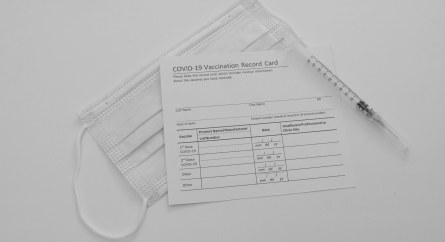Expanded Unemployment Benefits Through the Federal CARES Act
On March 27, 2020, the President signed into law the Coronavirus Aid, Relief, and Economic Security Act (the “CARES Act”). Among other things, the CARES Act significantly expands unemployment benefits. Some important information regarding the CARES Act’s expanded unemployment provisions are below.
Expanded Eligibility for Unemployment
The CARES Act creates a temporary “Pandemic Unemployment Assistance” program for individuals unable to work due to COVID-19-related reasons between January 27, 2020 and December 21, 2020. The program will be funded by the federal government but administered by state unemployment agencies.
To be eligible for this program, workers must self-certify to his or her applicable state agency that he or she is otherwise able and available to work, except that he or she is unemployed, partially unemployed, or unable or unavailable to work or telework because:
- the individual has been diagnosed with COVID–19 or is experiencing symptoms of COVID–19 and seeking a medical diagnosis;
- a member of the individual’s household has been diagnosed with COVID–19;
- the individual is providing care for a family member or a member of the individual’s household who has been diagnosed with COVID–19;
- a child or other person in the household for which the individual has primary caregiving responsibility is unable to attend school or another facility that is closed as a direct result of the COVID–19 public health emergency and such school or facility care is required for the individual to work;
- the individual is unable to reach the place of employment because of a quarantine imposed as a direct result of the COVID–19 public health emergency;
- the individual is unable to reach the place of employment because the individual has been advised by a health care provider to self-quarantine due to concerns related to COVID–19;
- the individual was scheduled to commence employment and does not have a job or is unable to reach the job as a direct result of the COVID–19 public health emergency;
- the individual has become the breadwinner or major support for a household because the head of the household has died as a direct result of COVID–19;
- the individual has to quit his or her job as a direct result of COVID–19;
- the individual’s place of employment is closed as a direct result of the COVID–19 public health emergency; or
- the individual meets any additional criteria established by the Secretary for unemployment assistance under this section
Notably, this program provides unemployment benefits to a broad category of workers not traditionally entitled to such benefits, including independent contractors, gig workers, self-employed individuals, business owners, and workers who otherwise would not be eligible for unemployment because they have a limited work history or limited history of wages earned.
Individuals who are able to telework with pay or who are receiving sick leave or other paid leave benefits are not eligible.
Expanded Coverage
Prior to the CARES Act, workers in most states were only eligible for up to 26 weeks of benefits from regular state unemployment insurance programs. The CARES Act, however, extends unemployment benefits for an additional 13 weeks, for a total of up to 39 weeks of coverage.
Increased Payment to Workers
Covered workers will be entitled to a weekly benefit amount authorized under their state’s unemployment law. In addition, through July 31, 2020, covered workers will be entitled to an additional payment of $600 per week.
Waiting Week Waiver
Traditionally, states have required eligible workers to wait one week before distributing unemployment benefits. To help encourage states to waive this waiting week requirement, CARES Act provides funding to states for the coverage of this initial week of unemployment.
This does not affect the current state of affairs in Massachusetts, as the Legislature has already passed a law that waives the waiting week for cases related to COVID-19.
Assistance for Non-Profits Using the Reimbursable Method
The CARES Act provides that nonprofits that have chosen to be reimbursable employers (i.e., those who do not pay state unemployment tax) may be reimbursed for one-half of the amounts paid into a state unemployment trust fund between March 13, 2020, and December 31, 2020.
How Will the CARES Act Affect Unemployment Contribution Payments For Employers?
We do not yet know how the CARES Act’s unemployment provisions and other related recent changes in Massachusetts law will affect rates charged to employers for unemployment insurance contributions.
In a Q&A released by the Massachusetts Department of Unemployment Assistance (“DUA”) prior to the enactment of the CARES Act, the DUA stated that it “looking at the effect of COVID-19 on employer charging,” and that “rates will not change until January 2021.” We have no further information at this time.
Client Tip
On March 30, 2020 the Massachusetts DUA announced that it is awaiting federal guidance regarding the CARES Act’s application requirements, business rules, eligibility requirements, exceptions, and technical requirements, and stated that until that guidance is issued, benefits under the CARES Act are not yet available in Massachusetts. Please stay tuned for updates.
Categorized: COVID-19 Resources, Employment
Tagged In: CARES Act, coronavirus, COVID-19, unemployment assistance





